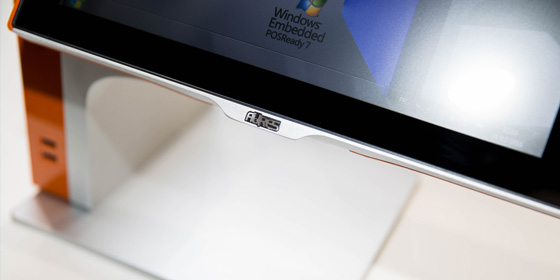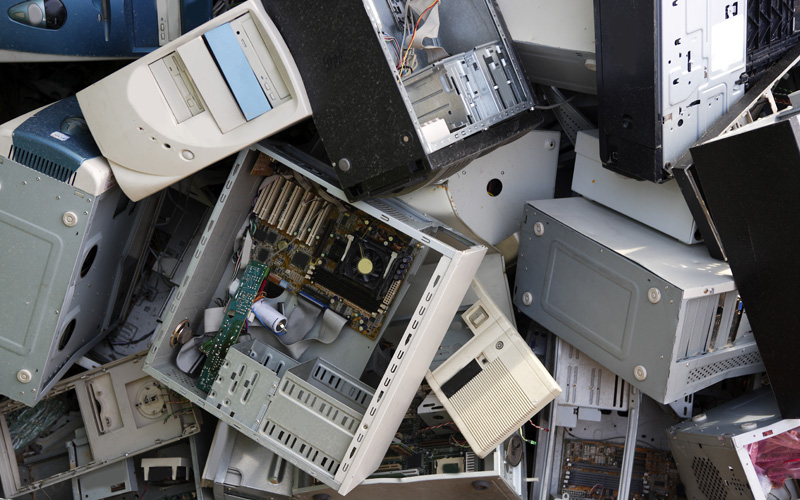Longevity and durability of AURES POS and KIOSK hardware:
let’s have a look.
Sustainability is at the heart of corporate strategies
Sustainability is today at the heart of concerns and strategies of more and more businesses and companies; IT manufacturers like AURES are launching a whole series of actions to limit their carbon footprint and energy consumption, reduce the volume of their packaging, waste and use of raw materials; at the same time, they try to control the practices of their suppliers and supply chains – by favouring, of course, more eco-responsible transport and logistics.
In order to anticipate changes in European directives, AURES Technologies has launched a CSR (Corporate Social Responsibility) initiative and a carbon footprint analysis early 2022. The long-term objective is to formulate a strategy and associated action plan that are consistent and realistic in terms of eco-, social and corporate responsibility (sustainable development) – and corporate governance.
For example, with regard to the packaging of its POS and KIOSK equipment, AURES is currently testing a new packaging (for the YUNO II POS system) that excludes almost all plastic and guarantees an improved recyclability rate.
But what about the lifespan of AURES equipment?
Programmed obsolescence is not part of the AURES philosophy; “systematically selling new POS and KIOSK equipment to all users at all costs is not an end in itself”, explains Arthur MILLIET, Sales Director of AURES France. “A good sales strategy must make a distinction and offer those who wish to extend the use of their equipment. Some users – such as small retailers for example – are not obliged or do not feel the need to update and upgrade their IT solutions; robust, quality POS systems, even if they are not completely new, can sometimes continue to do the job very satisfactorily at the point of sale” he concludes.
Traditional POS equipment has a lifetime of about 5 years; this is an average, as many end-users and retailers do not need to renew their equipment that often. Why not?
Sylvain MURIE, Head of AURES France (HQ) After Sales Department explains: “Some users of our POS systems seek to maintain and operate their hardware longer than the average; in most European countries, we find that some of our ” older ” POS terminals, such as SANGO or even GALEO, are still operating correctly (even if they have become a little slower and less responsive at times…) and can therefore easily be maintained or upgraded at a lower cost so that they can continue to be used on a day-to-day basis without any major breakdowns or slowdowns.
AURES does everything possible to guarantee the durability of its POS and KIOSK equipment,” continues Sylvain MURIE:
- At AURES, the stock of spare parts is guaranteed for up to 10 years after the end of a product’s life is announced; this gives customers time to repair and replace the elements concerned.
- Similarly, the processors and RAM memories that AURES integrates into its hardware are relatively standard, widespread subsystems- and therefore easy to replace if necessary.
- The most recent processors integrated by AURES (on YUNO II, for example) have a guaranteed availability until 2035, another argument in favour of the durability of the hardware.
- In addition, most of the POS systems developed by AURES are fanless, which means a significant reduction in failures because the absence of a fan significantly reduces the number of moving mechanical parts (and therefore the risk of failure).
- The same applies to the former hard disks (HDDs) used in previous generations of POS devices, which can often be easily replaced by SSDs (Solid State Drives), which are more reliable, resistant, efficient and more stable over time.
- As for the touch panels of AURES POS and KIOSK hardware, they are now increasingly sharp and accurate, responsive and long-lasting, with MTBFs of around 10 years (50,000 hours in operation); if necessary, they can be replaced very easily and without major additional cost.
- It is also worth remembering that the recent AURES POS equipment – such as YUNO II, JAZZ, TWIST – incorporate a common Processor Module (motherboard); for AURES, this mutualisation means rationalisation and optimization of its production and product roadmap; an advantage for AURES customers, with the guarantee of coherent, flexible and more durable IT POS & KIOSK assets, thanks to an increased level of maintainability.
In conclusion
Even if POS hardware does not yet benefit (like household appliances, smartphones or certain consumer computers in some countries…) from a “reparability index”, it is clear that the trend is no longer towards a “race to replacement”: Offering flexible,durable, resistant, upgradeable – and easily maintainable – equipment is also a guarantee of seriousness for manufacturers of professional POS and KIOSK IT solutions; this new criterion must be integrated into their thinking and their marketing and sales strategy, with the aim of securing the loyalty of customers and partners in the long term, whatever the IT projects involved.




